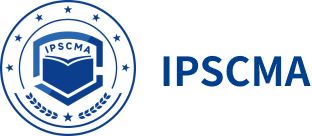The advanced thinking of professional procurement management: from the "price war" to the "overall view" of the gorgeous turn
Value-oriented procurement thinking has become the key to the competitiveness of enterprises. While most buyers are still struggling to compromise on the last penny, the true procurement experts have already raised their sights to the level of global value. A senior supply chain management expert once said: "Buyers who only look at prices are always traders rather than managers." This sentence reveals the essential difference between procurement specialization.
1. Price Myth: The Cognitive Trap of Procurement Management
Huawei has revealed its procurement management philosophy to the world: "At any time, price is not the first consideration. This view has puzzled many traditional purchasers. In Huawei's view, the sustainability, innovation, and risk control capabilities of suppliers are far more important than temporary price advantages.
From a practical point of view, an excessive focus on price often brings these hidden risks:
1. Fluctuations in quality: Suppliers have to sacrifice quality stability in order to achieve low prices
2. Supply disruptions: Low margins make it impossible for suppliers to maintain normal operations
3. Innovation stagnation: Suppliers have limited R&D investment under the price reduction model
4. Deterioration of cooperation: Short-term interests undermine long-term strategic partnerships
A case in point is Toyota's purchasing philosophy. In the automotive industry, which has extremely strict cost control, Toyota is not known for reducing prices, but collaborates with suppliers in a "common cost reduction" approach to ensure the healthy development of the entire supply chain.
2. Global perspective: the value reconstruction of professional procurement
At the heart of professional procurement management is the establishment of "Total Cost of Ownership", which includes:
- Life cycle costs: not only the purchase price, but also the full life cycle costs such as use, maintenance, and scrapping
- Switching costs: the investment of resources and potential risks associated with changing suppliers
- Relational value: Innovation, emergency response, and market opportunities from strategic partnerships
- Value at Risk: The economic value of security of supply, compliance, and reputational assurance
For example, Amazon's "long-term decision-making principle" emphasized in supply chain management is not guided by quarterly financial reports, but considers procurement decisions from a seven-year business development cycle, which has helped Amazon perform well in black swan events such as the epidemic.
3. Professional improvement: the transformation path from technology to management
In order to achieve the professional improvement of procurement management, systematic capacity building is required:
1. Knowledge system construction: Establish a complete procurement professional knowledge system including supplier management, negotiation strategy, risk control, etc
2. Strategic thinking training: Closely combine procurement with corporate strategic goals to achieve the strategic orientation of procurement decisions
3. Comprehensive capability development: improve data analysis, financial evaluation, contract management and risk identification capabilities
4. Professional qualification certification: obtain internationally recognized professional qualifications such as CPPM, and establish personal professional standards
This transformation process is not only the accumulation of knowledge, but also the reconstruction of the way of thinking. The transformation from a simple "procurement executor" to a "value creator" is a necessary growth process for every procurement professional.
4. Industry practice: the landing case of value procurement
Procter & Gamble's Supplier Relationship Leadership Program demonstrates the results of value sourcing in action. The project does not pursue short-term price advantages, but helps suppliers improve operational efficiency and achieve mutual benefit and win-win results through in-depth cooperation. Within five years, the project not only reduced P&G's total procurement costs by 30%, but also promoted the improvement of the overall supply chain innovation capacity.
Procurement professionals need to ask these questions: What value do we create for our suppliers? How can we contribute to the long-term competitiveness of our business through purchasing decisions? This way of thinking is the key to truly differentiating between transactional and managerial procurement.
Achieving this professional transformation requires continuous learning and practice. Systematic professional knowledge construction, practical experience accumulation and professional qualification certification together constitute the development ladder of the procurement career. The professionalism of procurement management is not only reflected in the negotiation table, but also in the depth and breadth of decision-making thinking.
epilogue
Price is only one variable in the purchasing equation, not the whole story. True procurement specialization requires us to redefine value, establish a holistic perspective, and achieve the common growth of individuals and organizations through systematic capacity improvement. When we are no longer bound by price, we can truly discover the strategic value and professional charm of procurement management.
Through the establishment of a standardized professional ability evaluation system, such as the internationally accepted CPPM certification system, it can help procurement personnel realize the transformation from "price negotiators" to "value managers", so as to play a greater strategic value in the enterprise supply chain.
